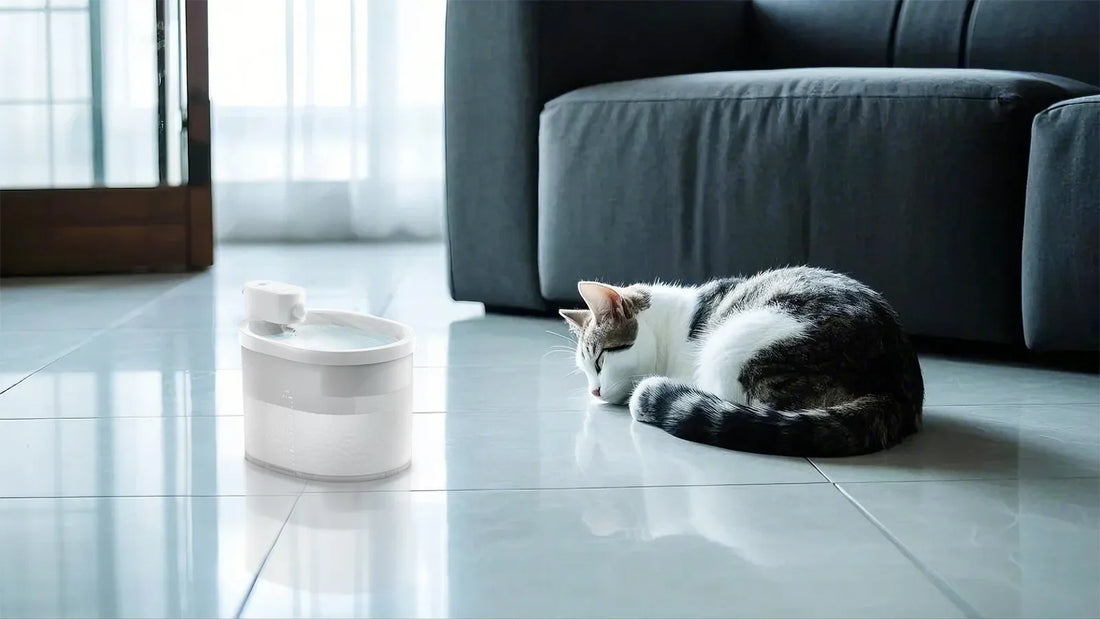When your dog starts vomiting after drinking water and refuses to eat, it can be a distressing experience for any pet owner. This behavior often signals an underlying issue that requires attention. Understanding the potential causes and knowing how to respond can make a significant difference in your dog's health and well-being.
Common Causes of Dog Vomiting After Drinking Water
Several factors can lead to your dog vomiting after drinking water. One of the most common causes is gastrointestinal upset. This can occur due to dietary indiscretion, such as eating something inappropriate or consuming too much water too quickly. Additionally, infections, such as bacterial or viral gastroenteritis, can irritate the stomach lining, leading to vomiting.
Another potential cause is pancreatitis, an inflammation of the pancreas that can result in nausea and vomiting. Dogs with pancreatitis often exhibit other symptoms like abdominal pain and lethargy. Kidney disease and liver issues can also lead to vomiting, as these organs play a crucial role in filtering toxins from the body.
Why Is My Dog Not Eating?
When a dog refuses to eat, it is often a sign of discomfort or illness. Dental problems, such as tooth decay or gum disease, can make eating painful. Similarly, gastrointestinal issues like bloating or constipation can reduce appetite. In some cases, stress or anxiety can cause a dog to stop eating, especially if there have been recent changes in their environment or routine.
More serious conditions, such as cancer or organ failure, can also lead to a loss of appetite. It's essential to monitor your dog closely and seek veterinary advice if the behavior persists.
When to Seek Veterinary Care
While occasional vomiting may not be a cause for immediate concern, certain symptoms warrant a visit to the vet. If your dog is vomiting repeatedly, appears lethargic, or shows signs of dehydration, such as dry gums or sunken eyes, it's crucial to seek professional help. Additionally, if your dog has not eaten for more than 24 hours, it's time to consult a veterinarian.
Other red flags include blood in vomit, severe abdominal pain, or unexplained weight loss. These symptoms could indicate a more serious condition that requires prompt medical intervention.
Home Remedies and Care Tips
If your dog is vomiting after drinking water and not eating, there are several steps you can take at home to help them feel better. First, withhold food for 12 to 24 hours to allow the stomach to settle. However, ensure your dog has access to small amounts of water to prevent dehydration.
Once the vomiting subsides, introduce a bland diet consisting of boiled chicken and rice. This gentle meal can help soothe the stomach and encourage eating. Avoid giving your dog any treats or table scraps during this time, as they may exacerbate the issue.
Additionally, monitor your dog's behavior and environment for any potential stressors. Providing a calm and comfortable space can help reduce anxiety and promote recovery.
Preventing Future Episodes
To minimize the risk of your dog vomiting after drinking water and not eating, consider the following preventive measures. Ensure your dog has a balanced diet and avoid sudden changes in their food. Provide fresh water at all times, but monitor their intake to prevent overdrinking.
Regular veterinary check-ups can help detect and address any underlying health issues before they become serious. Additionally, maintain good dental hygiene by brushing your dog's teeth regularly and scheduling professional cleanings as needed.
Finally, keep an eye on your dog's behavior and environment. Reducing stress and providing a stable routine can go a long way in maintaining their overall health and well-being.
Your dog's health is a top priority, and understanding the reasons behind their vomiting and loss of appetite is the first step toward ensuring their well-being. By taking proactive measures and seeking veterinary care when necessary, you can help your furry friend lead a happy and healthy life.













